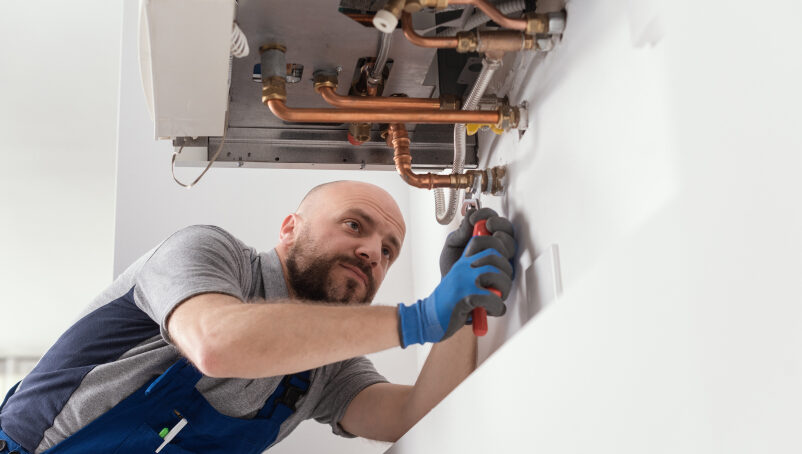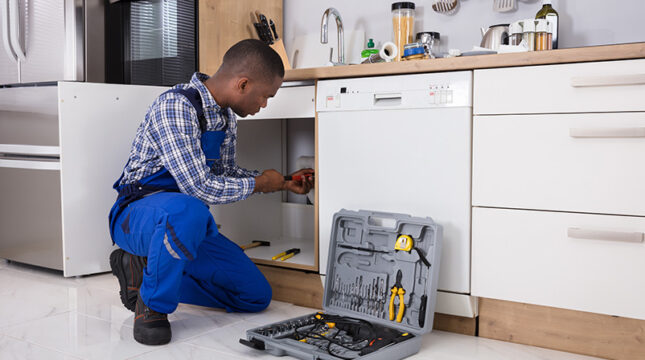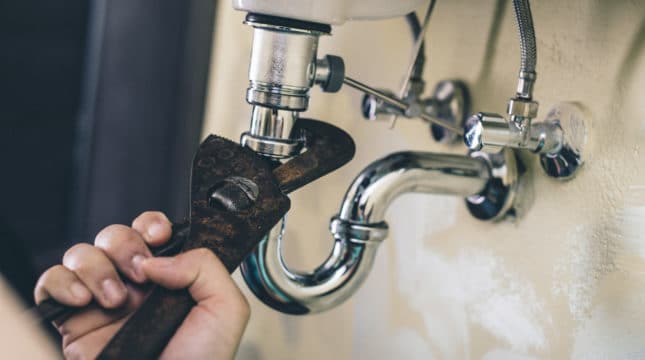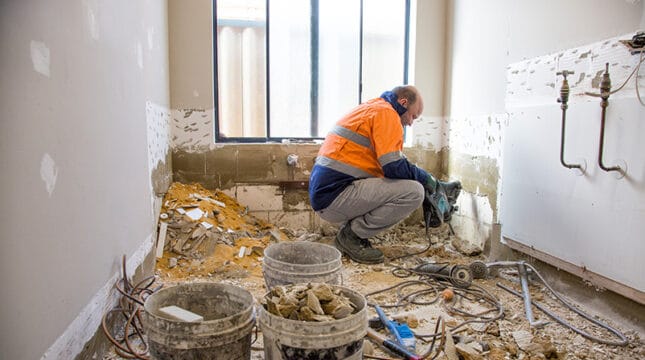Do you need a Louisiana plumbing license to do plumbing work?
Yes, the State Plumbing Board of Louisiana (SPBLA) and the Louisiana State Licensing Board for Contractors (LSLBC) require plumbers to have a license and oversee all licensure in the Pelican State. You’ll follow a structured career path to help you build expertise over time, starting as a registered apprentice.
From there, you can move into residential plumbing and work toward becoming a master plumber in Louisiana.
The SPBLA offers several types of licenses:
- Apprentice (registration only)
- Residential plumber
- Journeyman plumber
- Master plumber
- Water Supply Protection Specialist (WSPS) endorsement
- Medical gas
- Natural gas
- Master natural gas fitter
To own a business and hire employees, you must get a contractor license from the LSLBC. You must get a commercial contractor license for plumbing projects exceeding $10,000, including labor and materials.
Insurance requirements for a Louisiana plumbing license
Want to protect your plumbing business? Business insurance in Louisiana isn’t just about checking boxes — it’s about safeguarding your future. Here’s the plumbing coverage to fulfill licensing requirements and protect your business.
Workers’ Compensation insurance
Louisiana law requires workers’ comp the moment you hire your first employee. This coverage can help with medical bills and lost wages if an employee gets hurt on the job.
Learn more about workers’ compensation for contractors.
General Liability insurance
General liability insurance helps cover accidents, property damage and personal/advertising harm that could otherwise drain your business dry.
Learn more about general liability insurance for contractors.
Commercial property insurance
Whether you run operations from a small workshop or a large warehouse, commercial property insurance helps protect your operations base — whether you rest or own the space. This coverage extends to your building structure, products and inventory, furniture and equipment you use for work.
Business Owner’s Policy
A business owner’s policy, or BOP insurance, provides broad coverage of general liability and commercial property policies combined in a single, more cost-efficient bundle. That means it can help cover damage that you or your employees may inadvertently cause to another person’s property and help protect your business inventory in the event of a fire or other covered event.
Tools and Equipment insurance
Those specialized pipe wrenches and drain cameras didn’t come cheap. Tools and equipment coverage means you won’t miss a beat if your gear gets stolen from the job site or damaged in transit.
Commercial Auto insurance
If you’re driving for work-related purposes, your work truck likely needs commercial auto insurance. It helps protect against everything from fender benders to major accidents while zipping between jobs.
In Louisiana, drivers must have liability insurance that meets the minimum limits required by law:
- $15,000 for bodily injury
- $30,000 for bodily injury per accident,
- $25,000 coverage for property damage
Steps to get a Louisiana plumbing license
Getting fully licensed takes time. But starting as an apprentice means you’re earning while learning. We’ll outline the education, work experience and other requirements needed to get various licenses from the Board.
1. Apprentice plumber
Your plumbing credentials begin with getting your apprentice registration card. It’s your ticket to hands-on learning, and you’ve got two paths to choose from:
- Indentured apprentice: Join an approved Louisiana Workforce Commission (LWC) training program
- Unindentured apprentice: Work directly under a licensed master plumber
Enrolling in an approved apprenticeship program means you’ll need fewer on-the-job training hours when applying for the exam.
You’ll submit your apprenticeship application to the State Plumbing Board. They’ll review it and mail your Apprentice Registration Card in about two weeks. If you’re in a hurry, you can visit an office for same-day processing.
After approval, you’ll receive your exam date — but here’s a pro tip: you can apply for a temporary work permit to start working while you wait for your residential or journeyman plumber license test date.
2. Residential plumber
To qualify for a residential plumbing license in Louisiana, you’ll need to get a few thousand hours of work under your belt. Indentured apprentices need 3,000 hours of supervised work experience, while unindentured apprentices need 4,000 hours.
Here’s how it works:
- Apply: Submit a residential plumber application to the SPBLA along with payroll documents or official W2 forms as proof of the required hours. (Must be notarized)
- Exam: If your application is approved, you’ll get the go-ahead to take the residential plumber exam in Baton Rouge or Shreveport (the SPBLA will notify you of the location, exam date, and starting time).
The National Inspection Testing and Certification Corporation (NITC) administers the Residential Plumber Limited exam. The test consists of 80 questions, a written exam and a practical (hands-on) portion. You can purchase the official reference material for the Louisiana plumbing license exam from the International Code Council (ICC) to prepare.
3. Journeyman plumber
Journeyman plumbing license candidates must have more extensive experience: 7,000 hours for indentured apprentices or 8,000 hours for unindentured apprentices. That adds up to about 3.5 to 4 years of full-time work.
Fill out the journeyman plumber application and submit it with your payroll documents or W2s. If you have a plumbing license in another state, you’ll send a copy with your application.
Once your application is approved, the SPBLA will send you information about your exam location, date, and time. The exam has a written portion that covers:
- International Plumbing Code (IPC)
- International Residential Code (IRC)
It also has a practical portion that includes:
- Floor plan project
- Screw pipe project
- Copper project
Like the residential plumbing license, the NITC administers the journeyman plumber exam. This exam includes an open-book written exam and a three-part practical exam. You must score 70% to pass.
4. Master plumber
A master plumber license in Louisiana requires you to have a journeyman license first. Professional engineers certified by the Professional Engineering and Land Surveying Board can also apply.
You’ll send your master plumber application to the SPBLA to get on the schedule to take the exam. The exam is more comprehensive than the other plumbing license levels — it covers three parts:
The master plumber exams are open-book. You must score 70% on each exam category to pass.
5. Plumbing contractor licenses
You can either get a commercial contractor license with plumbing as a major classification or a mechanical license with a plumbing subclassification.
The Louisiana plumbing contractor license only requires:
- A commercial contractor license application — apply through the licensing portal
- Registration status and charter number (If applying as a corporation, LLC or limited partnership)
- Financial statement
- Articles of incorporation/organization/partnership agreement (All but sole proprietor)
- Copy of your Louisiana master plumbing license
- Designation of a qualifying party
Follow all instructions on the checklist page and ensure that all documents are up-to-date to avoid delays in the review process. For a single contractor classification, you’ll pay $160, which includes a background check processing fee.
You don’t need to take a trade exam, but you’ll need to pass a Business and Law course.
Does Louisiana have plumbing license reciprocity?
You’re in luck if you have a journeyman license from Arkansas or Texas — Louisiana welcomes you with minimal documentation. Just complete the reciprocation license application and submit a copy of your current license, and you’ll be on your way.
Master plumber licenses, however, don’t qualify for Louisiana plumbing license reciprocity.
If you’re coming from another state, it isn’t quite as simple. You’ll need to take the Louisiana exam, but your existing license can help prove your work experience.
Contractor license reciprocity
The LSLBC has reciprocal agreements with other states; however, reciprocity only exempts the trade exam and does not waive any other requirements. Each reciprocity agreement between Louisiana and the reciprocal state varies and may not cover all classifications/trades. Check with the board before applying.
To apply, submit the reciprocity application form.
How to renew your plumbing license in Louisiana
Mark your calendars for the Louisiana State Plumbing Board license renewal — it requires annual renewal by December 31. Here’s what you’ll need:
- Apprentices: Just submit your renewal
- Residential and journeyman plumbers: Complete 3.5 hours of continuing professional education (CPE)
- Active master plumbers: Complete 5 hours of CPE
- Inactive master plumbers working as journeymen: 3.5 hours of CPE
You can find approved CPE providers on the SPBLA website.
After holding a Louisiana plumbing contractor license for a year, you can opt to renew on the online renewal form for a one-, two-, or three-year period. The LSLBC will send a renewal notice 60 days before your license expiration date and 15 days prior. These notices will include instructions on how to renew online.
There are no continuing education requirements for commercial contractors.





